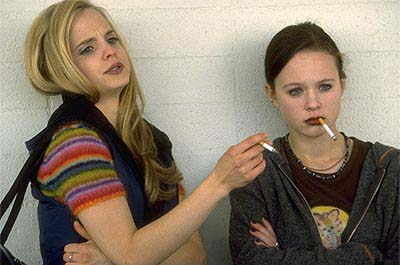Let's talk about characters for a moment, shall we? Almost every story has them. They're crucial. Without characters, there really isn't much to propel the plot. Even stories that are "character-driven" have a plot of some kind, a story that is happening. So yes, characters are important.
But what about character names?
Oftentimes writers will assign names to characters without really evaluating whether or not the assigned name is the very best name. I know I've done it. I'm writing a story and a character pops up out of nowhere and I look around at books or magazines or whatever is close by to try to come up with a name for this impromptu character, a name that (hopefully) fits. And sometimes, well, I don't give any of the characters names. As Ben Loory (a writer who never gives his characters names) once said, names just get in the way.
Looking back at the stories I published last year, the majority of them consisted of characters without any names. And was anything lacking in those stories because I had not given those characters names? Some will argue yes. In fact, I remember when I published "Incomplete" last year a commenter said something to the effect that he/she related better to stories when the characters are given names. It was such an odd, asinine comment that it has stuck with me ever since. I mean, even if those characters in "Incomplete" -- the boy, the father and mother -- had names, would that have improved the story? If anything I think the story would have less of an effect on readers. Without names, the characters (in my opinion at least) become all that more intimate because, maybe, we see ourselves in them.
Don't get me wrong -- naming characters can be a good thing. Sometimes a character's first and last name can help describe that character instantly. I could run through a hundred of examples, but let's stick with some simple ones: Angela and Jane from American Beauty.

In the film Angela is played by Mena Suvari, a blonde cheerleader who becomes Lester Burnham's fantasy girl. He falls in love with this "angel" who just happens to be friends with his daughter (Thora Birch), a "plain jane" who wears dark clothing and doesn't think herself pretty.
See? This happens all the time. Some writers put a lot of thought into naming their characters, while others ... not so much. Of course, sometimes writers put way too much thought into naming their characters where the conceit becomes much too obvious. Like John Coffey in The Green Mile. I mean, come on, really? I love the book (and the movie), but giving your Christ figure the initials JC is a little bit much, wouldn't you say?
For me, I let the story dictate whether or not the characters need names. If I'm writing a novel, then yes, those characters will have names. A short story? Most times. A flash fiction piece or hint fiction piece? Most likely not. When you're dealing with an economy of words, why waste them on giving your character a first and last name? And if no last name, does the character really need a first name too? So what if his name is Chuck or George or Baron? Does that bring anything special to the story? If not, then why include it in the first place?
Look, I'm not knocking stories where characters have names. Like I said, I do it sometimes. But the mindset where the characters in a story must have names so that they will be more relateable ... that's just stupid. Or no -- that's just a reader's opinion. It's impossible to please every reader, so it's not even worth trying to do it. Someone is always going to complain.
Character names can be distracting, too. I remember reading this book where there were only three main characters and each of their names started with C. The names were all different, of course, but having each name start with the same letter became a distraction. And sometimes the character name in question might be the name of someone we know, and depending on how we feel about that person at that particular moment in time, our mood toward that character could change. But again, it's impossible to please all the readers all of the time
So "Multiplicity" then. I'm sure it's not the first time a story has been written with every character given the same name. But I was thinking one day how writers try to keep their characters' names as separate as possible, and how in real life you can't control a person's name, and how in school there are many kids with the same first name, just as it happens in the workplace, and I thought what if a character named XXX ran into a bunch of other characters named XXX. Thus "Multiplicity" was born. My main goal, of course, was to get to a scene where all these different characters with the same name would be fighting. It would be great fun to screw with the reader's head. So I came up with the basic botched-robbery storyline, a storyline that wouldn't be nearly as interesting and fun if each of those characters were given different names. In fact, if each character was given a different name then the story would just be boring. But it's the fact that each character is named Jeff, and the reader has to work harder than usual to keep those Jeffs straight, that gives the story (again, in my opinion at least) its true effectiveness.


